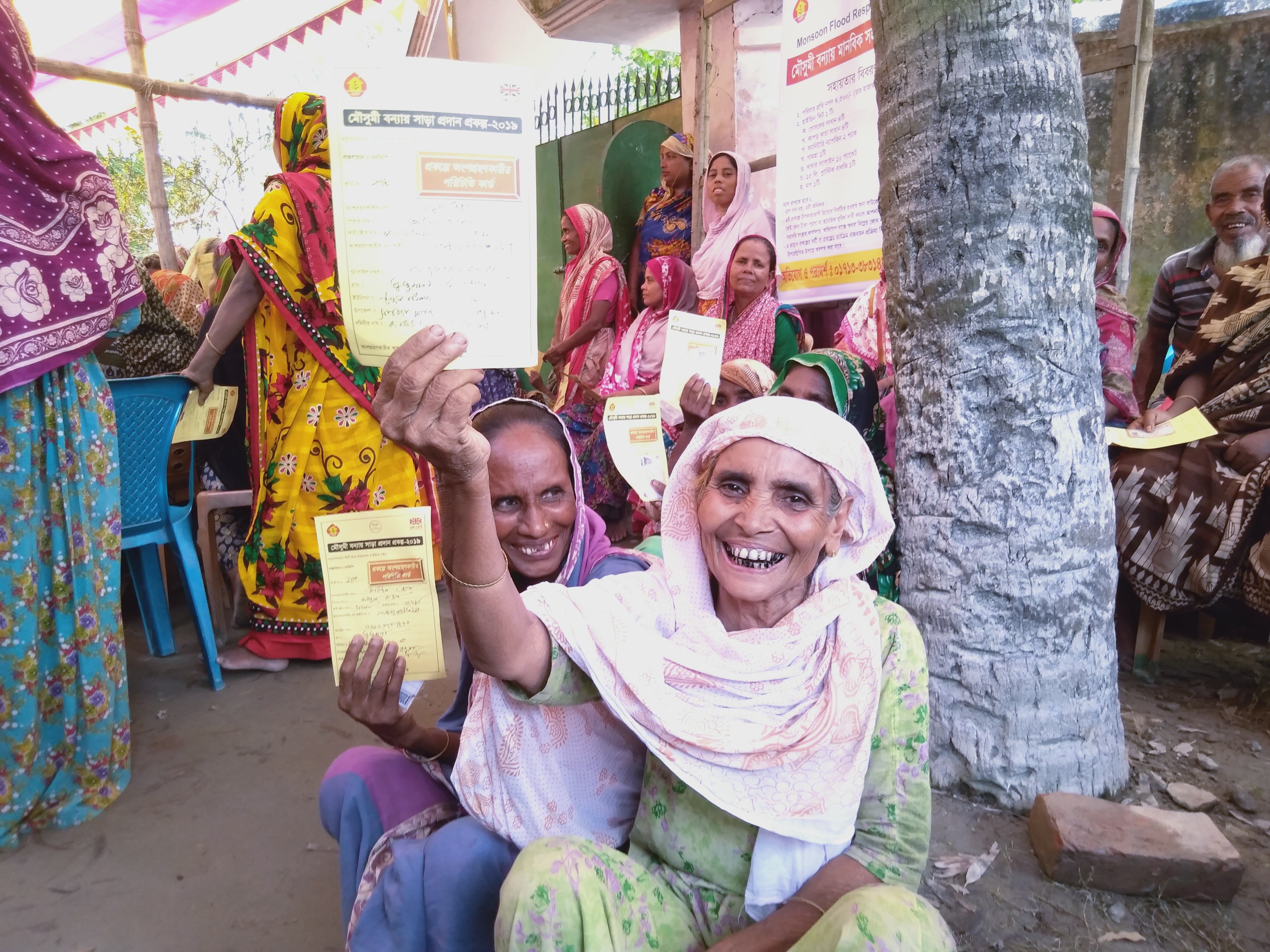“It's a great example of localisation, the local NGOs have access to funds, mutual learning opportunity and ensured collective efforts for national and international organisations”
(Start Network Member, Start Fund Bangladesh Member Survey, 2019)
2019 has been a significant year for the Start Fund Bangladesh in meeting the localisation commitments of the Start Network. In May 2019, 26 local and national NGOs completed the due diligence assessment and joined the 20 existing Start Network members who participate in Start Fund Bangladesh. At about the same time, funds were moved inside the country, which meant financial resources could move faster and with lower overheads.
Almost immediately upon joining these new local and national NGOs started raising alerts, submitting proposals and receiving funds directly, and over the past 8 months, most of the awards have been to these new local organisations.
So, what has been the impact of shifting the power to local organisations?
At the end of November, 6 months in, both the new local and national organisations and the existing Start Network members were surveyed about the changes they had seen since the new NGOs had joined. A total of 39 individuals responded to the survey: 12 individuals from 11 Start Network member organisations, and 27 individuals from 20 new local and national organisations.
More than 95% stated that the Start Fund Bangladesh had changed their organisational practices to some degree.
For existing Start Network members this was mostly reflected in enhanced organisational readiness and team preparation for more timely response, including early action as well as faster decision-making and field deployment. A few others also picked up on significant changes around Indirect Cost Recovery (or ”overhead”), with both more flexibility in this and a greater sharing with local partners. This is a major advance in the move to increase the financial sustainability of local implementors.
More than half of the new local and national organisations gave examples of changes related to increased organisational capacities. Not only is the rapid response helping them to reach affected communities faster but working with Start Fund Bangladesh has allowed them to enhance the strength of their organisations’ internal systems. They have reviewed policies, implemented new strategies and contingency plans. This improvement is fundamental in establishing the sustainability of local and national NGOs whose increased capabilities can attract more financial investment.
“Start Fund Bangladesh has created the opportunity and space to promote the localisation process … we have started to connect with different stakeholders … working together for wider replication of best practices.”
(New Local/National NGO, Start Fund Bangladesh Member Survey, 2019)
Most of the respondents, both existing Start Network members and the newly joined local and national NGOs, agreed that Start Fund Bangladesh promotes greater collaboration. They provided examples of not only collaboration between NGOs, but also across local governments and district administration, and different clusters, working groups, and networks in-country. The new local and national NGOs felt that their voices are being heard by the international NGOs and that “the process of shifting the power had started”.
“Start Fund Bangladesh facilitated the empowerment of Local and National NGOs in a way which makes them understand what they are truly capable of…”
(New Local/National NGO, Start Fund Bangladesh Member Survey, 2019)
“Bringing together the international NGOs with national and local NGOs” was seen to be a major achievement of Start Fund Bangladesh. They are now both recognised as having an important role in decision-making and implementation. Working together they have seen the benefits in terms of improved timeliness and quality of humanitarian action through rapid fund transferring processes, effective coordination, improved internal processes, and “creating the space for sharing learning”.
“I feel that through participation in the Start Network … local or national NGOs are now globally connected, their local knowledge is recognised and their leadership capacity more dynamic.”
(New Local/National NGO, Start Fund Bangladesh Member Survey, 2019)
The Start Network’s commitments to localisation do not end with Start Fund Bangladesh. In 2020 we embark on an exciting journey towards a network of regional hubs. The five founding hubs are to be in Democratic Republic of Congo, Guatemala, India, the Pacific region, and Pakistan. They will be led by organisations based in the countries and regions, with each hub being made up of a diverse representation of local, national and international organisations. Through localising resources and decision-making in these hubs we hope to improve the quality of humanitarian aid across the globe.
Read the first blog in our localisation series.
Read more about Start Fund Bangladesh.

